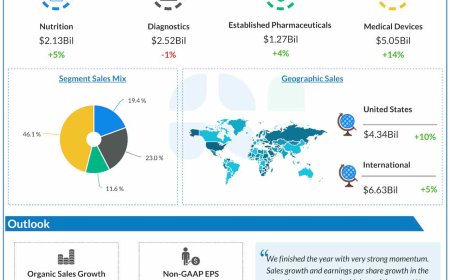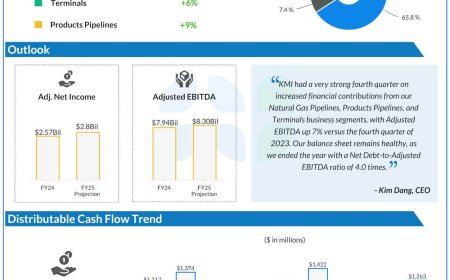TSX Battles into Positive Territory
Canada's main stock index pushed with difficulty into positive territory on Monday due to wider losses led by real estate and telecom shares, while investors parsed key domestic data that failed to quell concerns about a weaker economy. The TSX regained 19.6 points to move into noon EST to 24,619.68, after a week in which the index gave back 2.9%. The Canadian dollar folded 0.17 cents to 69.46 cents U.S. In corporate news, Unifor said on Sunday its members at Canadian National Railway have ratified a new four-year collective agreement, averting a potential strike action. CN shares gained 21 cents to $145.55. Elsewhere, the healthcare sector rose, boosted by Tilray Brands, which surged 16 cents, or 9%, to $1.94, as the cannabis firm extended its gains from the previous session. Payfare climbed $1.65, or 78.2%, to $3.76 after U.S. fintech firm Fiserv confirmed its acquisition of the Canadian company in a $201.5 million deal as it looks to expand payments offerings for gig-economy workers, the companies said on Monday. Economically speaking, Statistics Canada said real gross domestic product increased 0.3% in October as there were increases in both services-producing and goods-producing industries, while the Industrial Product Price Index increased 0.6% month over month in November and rose 2.2% on a yearly basis. StatsCan’s raw materials price declined 0.5% month over month in November and increased 2.0% year over year. ON BAYSTREET The TSX Venture Exchange retreated 0.16 points Monday to 586.61. The 12 TSX subgroups were evenly divided, with health-care higher 1.5%, energy rumbling 0.9%, and information technology going up 0.6%. The half-dozen laggards were weighed most by communications, down 1.1%, real-estate, off 1%, and consumer discretionary, sliding 0.6%. ON WALLSTREET The Dow Jones Industrial Average traded lower Monday as the market started a holiday-shortened trading week on a soft note. The 30-stock index faded 110.59 points to 42,729.67. The S&P 500 index recovered 16.76 points to 5,947.61 The NASDAQ rocketed 128 points to 19,700, as Tesla, Meta and Nvidia all climbed at least 2%. MicroStrategy slid on the stock’s first day of inclusion in the NASDAQ index. MicroStrategy shares faltered $15.84, or 16.8%, to $348.36. Trading is expected to be relatively muted during the week. The New York Stock Exchange closes early Tuesday for Christmas Eve at 1 p.m. ET, and the market is shut on Christmas Day. Weak economic data seemed to sour the sentiment. The Conference Board’s consumer confidence index for December fell to 104.7, its lowest level since September and below a Dow Jones estimate of 113.0. Meanwhile, orders for durable goods — generally big-ticket items such as aircraft, appliances and computers — fell 1.1% in November, the largest month over month drop since June. Investors were hopeful that a so-called Santa Claus rally may help the market end 2024 on a high note, especially following a tumultuous week. Dating back to 1969, the S&P 500, on average, added 1.3% in the last five trading days of the year and the first two in January, according to the Stock Trader’s Almanac. The second half of December is also typically the second-strongest period of the year for U.S. equities, and the S&P 500 has been up 83% of the time in December of presidential election years, according to Bank of America. Prices for the 10-year Treasury sank a bit, lifting yields to 4.56% from Friday’s 4.53%. Treasury prices and yields move in opposite directions. Oil prices dipped 79 cents to $68.67 U.S. a barrel. Prices for gold paled $12.80 an ounce to $2,626.40 U.S.

Canada's main stock index pushed with difficulty into positive territory on Monday due to wider losses led by real estate and telecom shares, while investors parsed key domestic data that failed to quell concerns about a weaker economy.
The TSX regained 19.6 points to move into noon EST to 24,619.68, after a week in which the index gave back 2.9%.
The Canadian dollar folded 0.17 cents to 69.46 cents U.S.
In corporate news, Unifor said on Sunday its members at Canadian National Railway have ratified a new four-year collective agreement, averting a potential strike action. CN shares gained 21 cents to $145.55.
Elsewhere, the healthcare sector rose, boosted by Tilray Brands, which surged 16 cents, or 9%, to $1.94, as the cannabis firm extended its gains from the previous session.
Payfare climbed $1.65, or 78.2%, to $3.76 after U.S. fintech firm Fiserv confirmed its acquisition of the Canadian company in a $201.5 million deal as it looks to expand payments offerings for gig-economy workers, the companies said on Monday.
Economically speaking, Statistics Canada said real gross domestic product increased 0.3% in October as there were increases in both services-producing and goods-producing industries, while the Industrial Product Price Index increased 0.6% month over month in November and rose 2.2% on a yearly basis. StatsCan’s raw materials price declined 0.5% month over month in November and increased 2.0% year over year.
ON BAYSTREET
The TSX Venture Exchange retreated 0.16 points Monday to 586.61.
The 12 TSX subgroups were evenly divided, with health-care higher 1.5%, energy rumbling 0.9%, and information technology going up 0.6%.
The half-dozen laggards were weighed most by communications, down 1.1%, real-estate, off 1%, and consumer discretionary, sliding 0.6%.
ON WALLSTREET
The Dow Jones Industrial Average traded lower Monday as the market started a holiday-shortened trading week on a soft note.
The 30-stock index faded 110.59 points to 42,729.67.
The S&P 500 index recovered 16.76 points to 5,947.61
The NASDAQ rocketed 128 points to 19,700, as Tesla, Meta and Nvidia all climbed at least 2%.
MicroStrategy slid on the stock’s first day of inclusion in the NASDAQ index. MicroStrategy shares faltered $15.84, or 16.8%, to $348.36.
Trading is expected to be relatively muted during the week. The New York Stock Exchange closes early Tuesday for Christmas Eve at 1 p.m. ET, and the market is shut on Christmas Day.
Weak economic data seemed to sour the sentiment. The Conference Board’s consumer confidence index for December fell to 104.7, its lowest level since September and below a Dow Jones estimate of 113.0. Meanwhile, orders for durable goods — generally big-ticket items such as aircraft, appliances and computers — fell 1.1% in November, the largest month over month drop since June.
Investors were hopeful that a so-called Santa Claus rally may help the market end 2024 on a high note, especially following a tumultuous week. Dating back to 1969, the S&P 500, on average, added 1.3% in the last five trading days of the year and the first two in January, according to the Stock Trader’s Almanac.
The second half of December is also typically the second-strongest period of the year for U.S. equities, and the S&P 500 has been up 83% of the time in December of presidential election years, according to Bank of America.
Prices for the 10-year Treasury sank a bit, lifting yields to 4.56% from Friday’s 4.53%. Treasury prices and yields move in opposite directions.
Oil prices dipped 79 cents to $68.67 U.S. a barrel.
Prices for gold paled $12.80 an ounce to $2,626.40 U.S.











































